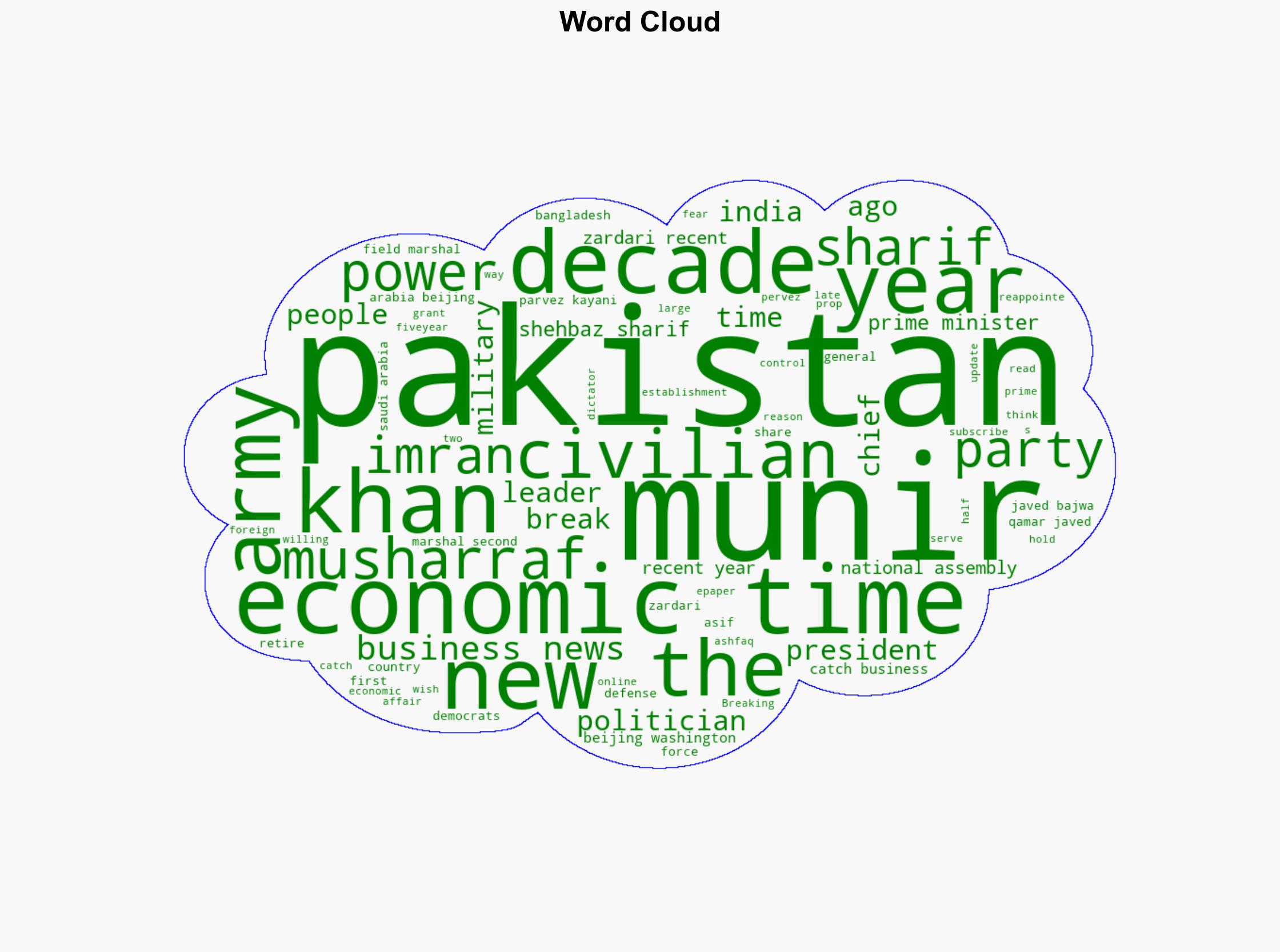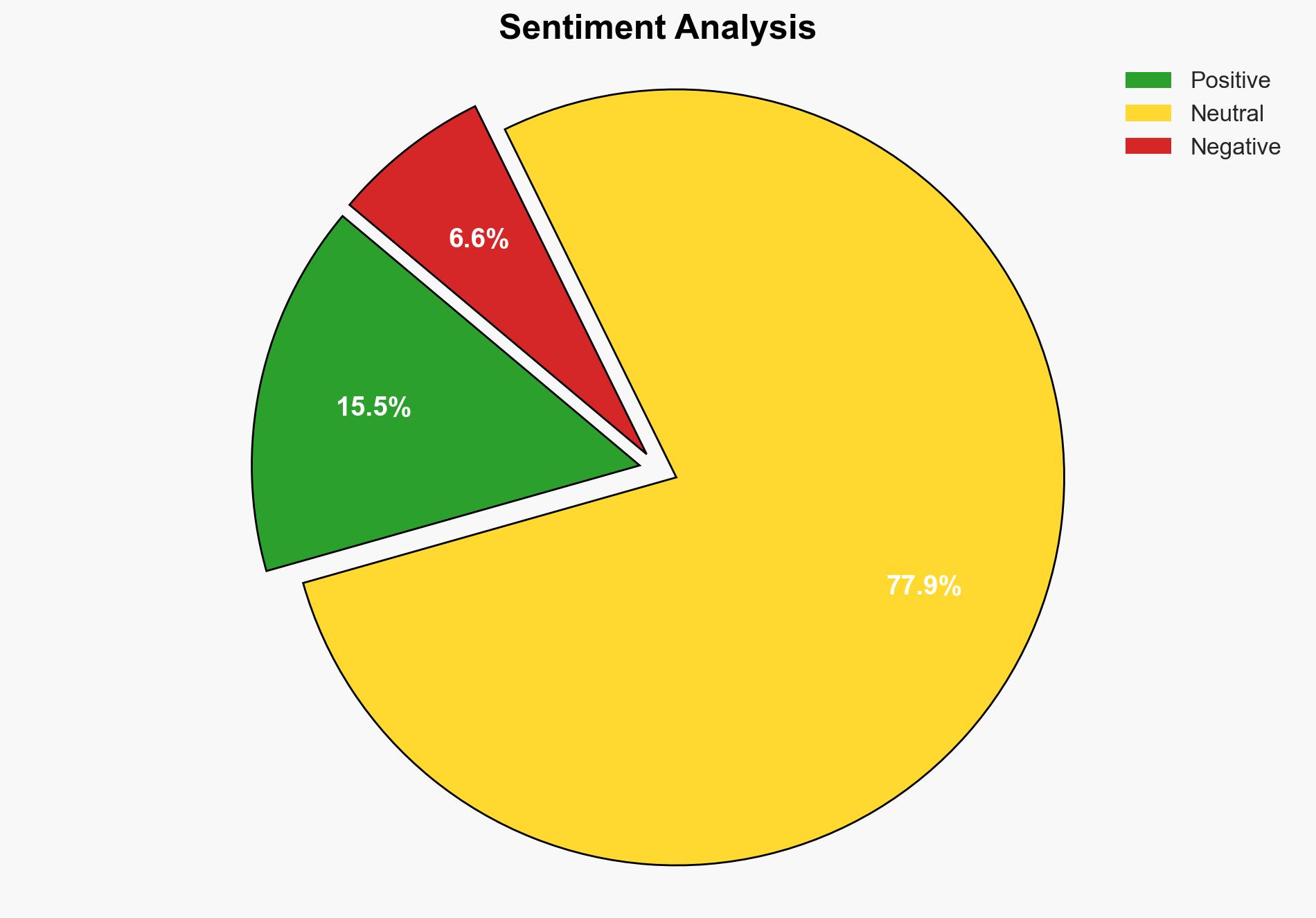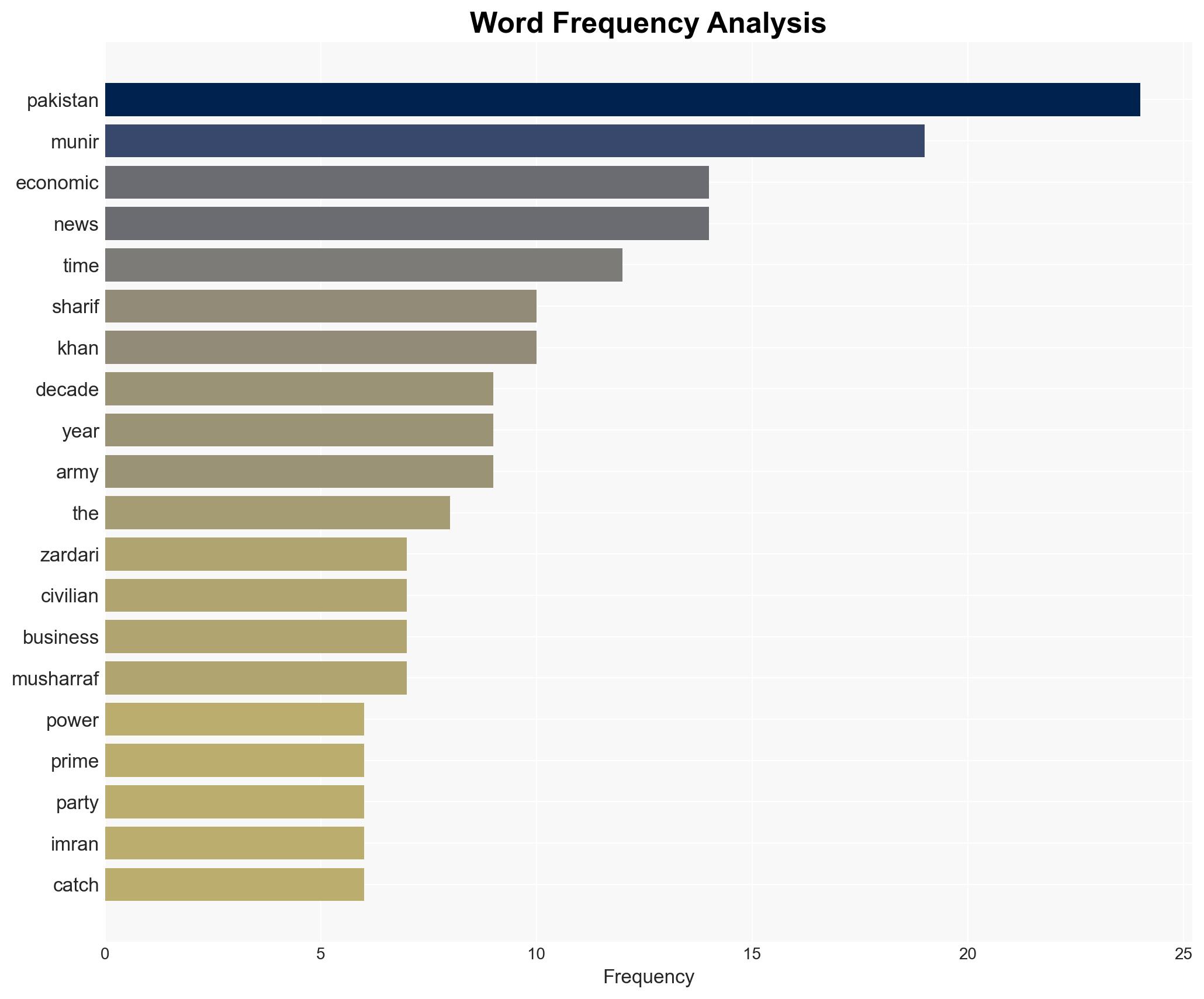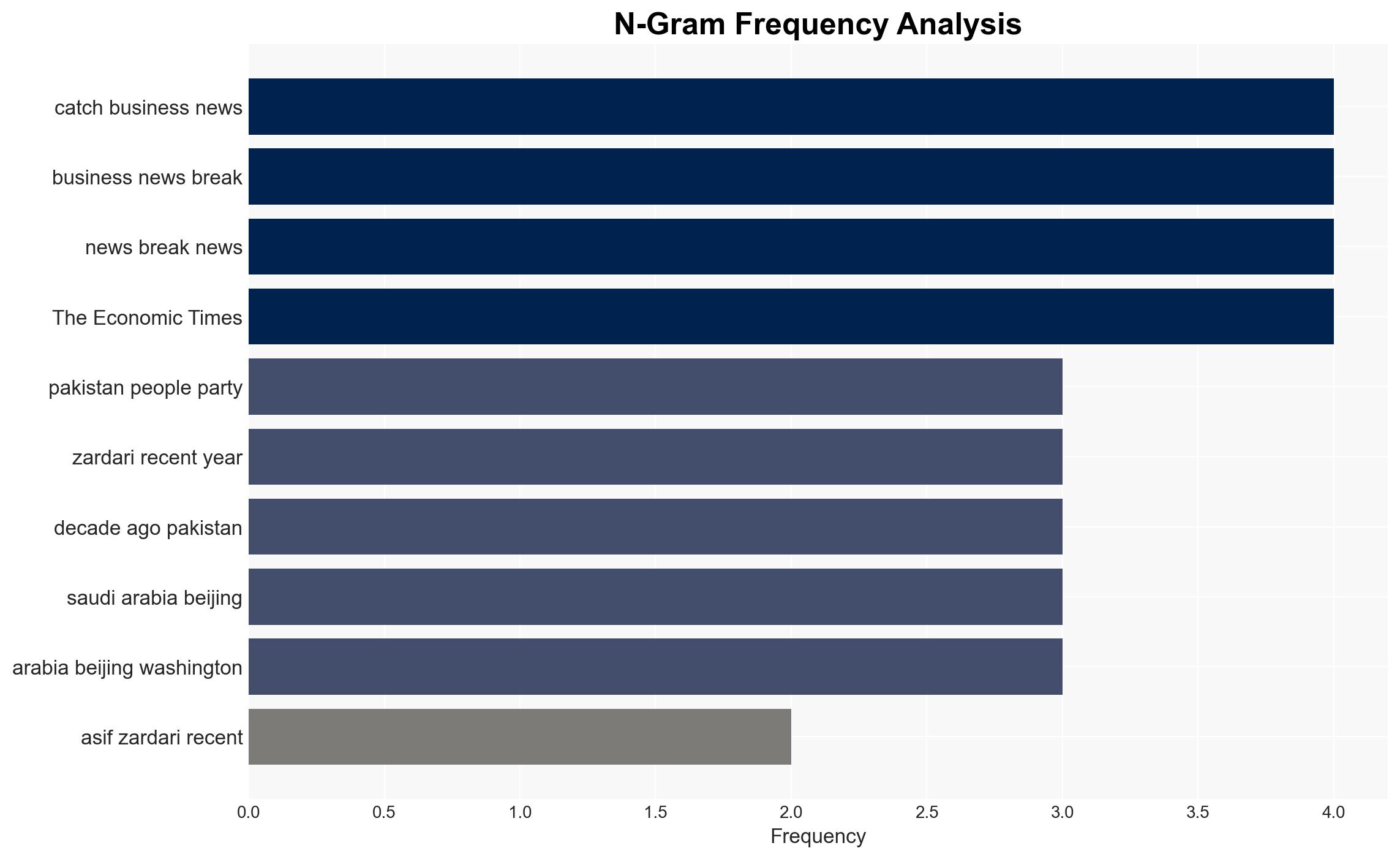Why Pakistan may regret letting the Army back in – The Times of India
Published on: 2025-11-20
AI-powered OSINT brief from verified open sources. Automated NLP signal extraction with human verification. See our Methodology and Why WorldWideWatchers.
Intelligence Report: Pakistan’s Military Influence and Political Dynamics
1. BLUF (Bottom Line Up Front)
There is a moderate confidence level that the reassertion of military influence in Pakistan’s political sphere will lead to short-term stability but long-term democratic erosion. The most supported hypothesis is that the military’s increased power will undermine civilian governance, potentially destabilizing the political landscape. Recommended action includes diplomatic engagement to encourage democratic processes and monitoring for signs of military overreach.
2. Competing Hypotheses
Hypothesis 1: The military’s increased influence will stabilize Pakistan’s political environment in the short term, providing decisive leadership in economic and security matters.
Hypothesis 2: The military’s dominance will erode democratic institutions, leading to long-term instability and potential civil unrest.
The second hypothesis is more likely due to historical patterns of military intervention in Pakistan, which have often resulted in weakened civilian governance and democratic backsliding.
3. Key Assumptions and Red Flags
Assumptions: It is assumed that the military will prioritize national stability over democratic processes. Another assumption is that civilian leaders will continue to cede power to the military to maintain their positions.
Red Flags: Increased military involvement in civilian economic projects and foreign affairs could signal a shift towards authoritarian governance. The potential for constitutional changes granting immunity to military leaders is a significant concern.
4. Implications and Strategic Risks
The military’s reassertion of power could lead to political polarization and civil unrest, especially if opposition figures like Imran Khan capitalize on anti-military sentiment. Economically, military control over strategic projects may deter foreign investment due to perceived instability. Internationally, Pakistan’s democratic backsliding could strain relations with democratic allies and embolden regional adversaries.
5. Recommendations and Outlook
- Encourage diplomatic dialogue with Pakistan to support democratic institutions and processes.
- Monitor military activities for signs of overreach or human rights abuses.
- Best-case scenario: The military supports economic recovery without undermining democratic governance.
- Worst-case scenario: Military dominance leads to authoritarian rule and widespread civil unrest.
- Most-likely scenario: Continued military influence results in a fragile balance between civilian and military powers, with periodic political instability.
6. Key Individuals and Entities
General Munir, Prime Minister Shehbaz Sharif, Asif Zardari, Imran Khan.
7. Thematic Tags
Regional Focus, South Asia, Military Influence, Democratic Erosion, Political Stability
Structured Analytic Techniques Applied
- Causal Layered Analysis (CLA): Analyze events across surface happenings, systems, worldviews, and myths.
- Cross-Impact Simulation: Model ripple effects across neighboring states, conflicts, or economic dependencies.
- Scenario Generation: Explore divergent futures under varying assumptions to identify plausible paths.
Explore more:
Regional Focus Briefs ·
Daily Summary ·
Support us





